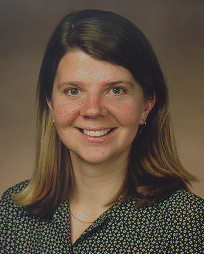 The National Science Foundation (NSF) Directorate for Computer and Information Science and Engineering (CISE) is pleased to announce a distinguished lecture on Wednesday, June 3, 2015 at 2:30 pm EST by Dr. Claire Tomlin titled Reachability and Learning for Hybrid Systems.
The National Science Foundation (NSF) Directorate for Computer and Information Science and Engineering (CISE) is pleased to announce a distinguished lecture on Wednesday, June 3, 2015 at 2:30 pm EST by Dr. Claire Tomlin titled Reachability and Learning for Hybrid Systems.
Claire Tomlin is a Professor of Electrical Engineering and Computer Sciences at Berkeley, where she holds the Charles A. Desoer Chair in Engineering. She held the positions of Assistant, Associate, and Full Professor at Stanford from 1998-2007, and in 2005 joined Berkeley. She has been an Affiliate at LBL in the Life Sciences Division since January 2012. Claire is an IEEE Fellow, and she received the Erlander Professorship of the Swedish Research Council in 2010, a MacArthur Fellowship in 2006, the Eckman Award of the American Automatic Control Council in 2003, the MIT TR100 award in 2003, and the NSF Career award in 1999. She works in hybrid systems and control, with applications to biology, robotics, and air traffic systems.
Abstract
Hybrid systems are a modeling tool allowing for the composition of continuous and discrete state dynamics. They can be represented as continuous systems with modes of operation modeled by discrete dynamics, with the two kinds of dynamics influencing each other. Hybrid systems have been essential in modeling a variety of important problems, such as aircraft flight management, air and ground transportation systems, robotic vehicles and human-automation systems. These systems use discrete logic in control because discrete abstractions make it easier to manage complexity and discrete representations more naturally accommodate linguistic and qualitative information in controller design.
A great deal of research in recent years has focused on the synthesis of controllers for hybrid systems. For safety specifications on the hybrid system, namely to design a controller that steers the system away from unsafe states, we will present a synthesis and computational technique based on optimal control and game theory. In the first part of the talk, we will review these methods and their application to collision avoidance and avionics design in air traffic management systems, and networks of manned and unmanned aerial vehicles. It is frequently of interest to synthesize controllers with more detailed performance specifications on the closed loop trajectories. For such requirements, we will present a toolbox of methods combining reachability with data-driven techniques inspired by machine learning, to enable performance improvement while maintaining safety. We will illustrate these “safe learning” methods on a quadrotor UAV experimental platform which we have at Berkeley.
To join the webinar, please register here by 11:59 EST on June 2, 2015.









